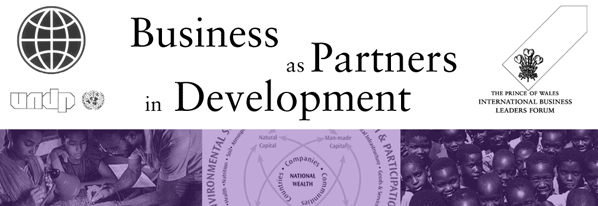

|
Hindustan Lever in India ································································································· |
|
| Developing
young managers and communities
_________________________ Vikram Grover is a young “high-flier” in the sales and marketing division of Unilever subsidiary Brooke Bond Lipton. Based in Bangalore, the “silicon valley” of India, Vikram has a Masters degree in Engineering from one of India’s most prestigious universities and has spent his first 10 months as a graduate trainee moving around the company’s core divisions: finance, production and marketing. He is now one of 50 young managers from the Unilever Group in India spending six weeks living and working with a family in a remote village in the Etah District of Uttar Pradesh, as part of Hindustan Lever’s Integrated Rural Development Programme (IRDP). The experience is challenging his comfortable assumptions and opening his eyes to the harsh realities of life for many of his fellow Indians. It is also developing his leadership skills, his ability to work in a team, to improvise, innovate and negotiate. And the experience is increasing his understanding of the opportunities and constraints of rural markets, which are important areas of potential growth for his company. Hopefully the projects that he and his colleagues are working on with their local hosts will also leave behind tangible and sustainable benefits, ranging from new skills, to physical improvements, enhanced institutional capacities and improved health care. One young manager, for example, is working with a local NGO to organise a camp for 100 physically handicapped children living in the area; another is helping villagers to install a series of handpumps; a third is working with villagers to finish and equip a half-built school. After an initial briefing each of these young managers is required to consult with the people in their host village, identify an area of need and develop an action plan in consultation with the villagers for meeting this need. Their period of secondment is an integral element of the company’s Integrated Rural Development Programme and of their own management development process.
|
The Integrated Rural Development Programme (IRDP) was established by Hindustan Lever (HL)
in 1976 as a last effort to improve milk yields from its dairy factory. The company had purchased
the factory in 1963, in response to the Indian government’s call for rural
industrialisation. Milk was supplied by local villagers, but after ten years of operation, despite efforts to introduce better
cattle and livestock management practices, the milk supply was so poor and erratic that the plant
was operating at 50% capacity and incurring substantial losses. HL
realised that the problem could only be overcome by taking a more
integrated approach and tackling not only livestock management, but the
underlying poverty in the area. The IRDP was therefore launched to
address the following activities: • improved dairy production through better animal husbandry and milk collection practices; • diversification to pigs, poultry, complimentary crops and dual use crops; • development of other income generation projects; • improved health care, especially immunisation for mothers and children; • infrastructure development, especially the provision of basic services; • literacy and training, especially improving access for women and girls; and • establishment of village development committees. Since 1976 milk collection has increased from 15,000 to 86,000 tonnes per annum and the dairy at Etah is now one of HL’s most profitable business units. Over 10% of the dairy’s pre-tax profit is currently invested in the IRDP which has also attracted increased government funding. It employs over 60 staff – mostly field officers who work with the village committees and the young managers during their six week secondments. From an initial six villages the programme now covers over 400, and plans to reach 700 by 1998. Not only has milk and factory production increased dramatically, but a 1991 evaluation also found improvements in other sources of village income, increased employment, literacy, health and leisure time. The company recognises that there is still room for improvement. PLAN International recently assessed the project against the following criteria – empowerment, gender equality, sustainability, quality and learning – and found a number of shortfalls, especially in the first two criteria. The company’s willingness to participate in such an evaluation indicates its commitment to continuous improvement, and increased attention is now being focused on these areas. There can be little doubt, however, that the villagers are enjoying a better quality of life now than they were in 1976. The on-going investment of Hindustan Lever, in terms of money, management secondments, technical expertise, budgetary discipline, senior management support and influence with local government departments, has played a critical role. The fact that the company is also benefiting from the programme, both directly through increased milk yields to its factory, and indirectly through the development of its young managers, is more likely to ensure long-term continuity and sustainability of the initiative, than if it was driven purely by corporate philanthropy. |
|
The above material is extracted from chapter 2.6 ("Integrated Community Development") of: Business as Partners in Development: Creating wealth for countries, companies and communities Jane Nelson/Prince of Wales Business Leaders Forum [now International Business Leaders Forum], in collaboration with The World Bank and The United Nations Development Programme , 1996, p. 205. © 1996 the Prince of Wales Business Leaders Forum |
|